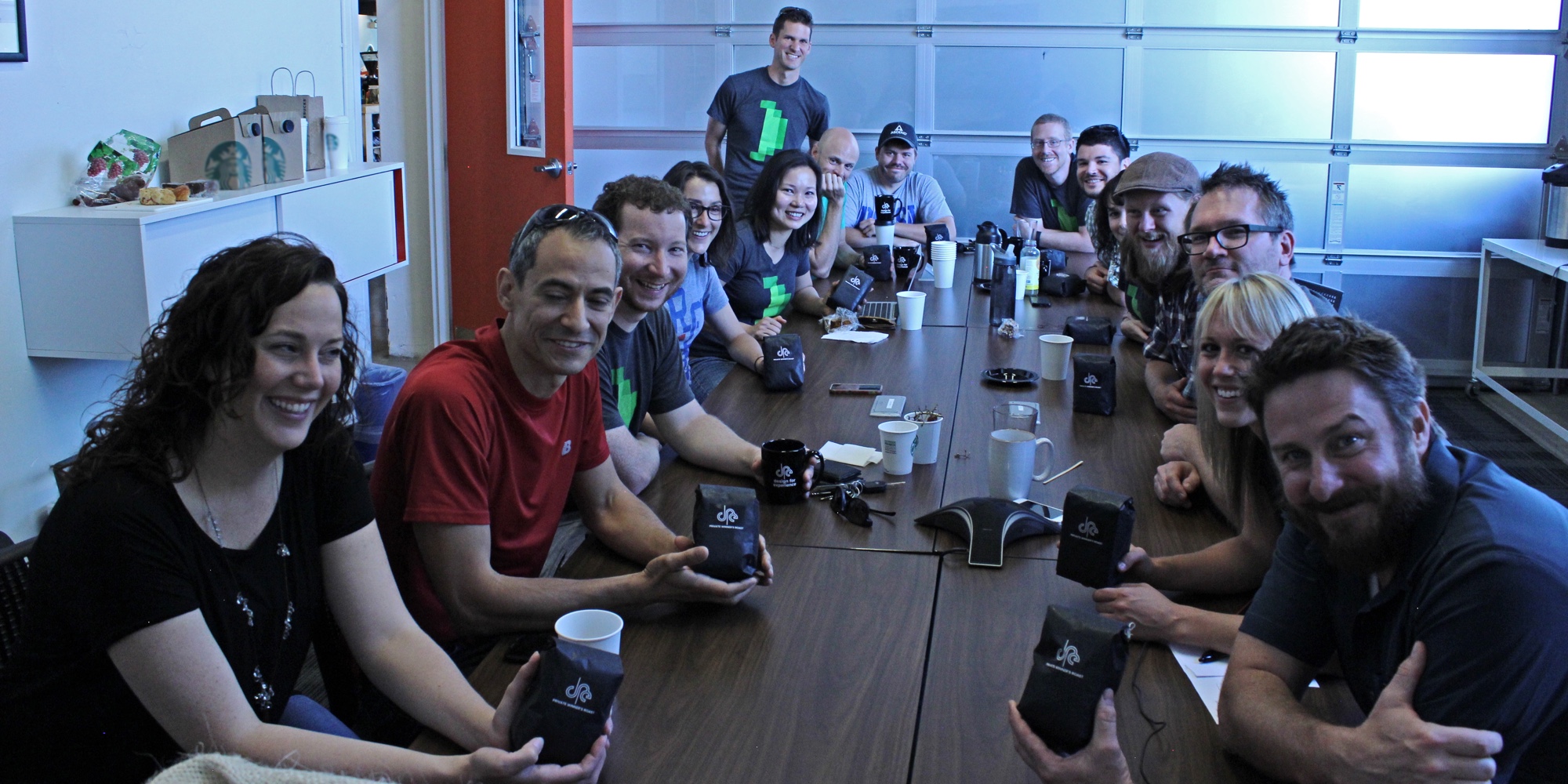When we were designing a private roast of coffee to present to this year’s winners of the Design for Experience (DfE) awards, we asked you this rather silly question:
“What’s your favorite coffee-related tasting note that also describes UX?”
We hoped an appropriate way to acknowlege excellence in experience design might be to let DfE award winners create and share a caffeinated experience of their own with some darn good coffee.
Delivering private winner’s roast coffee to DfE Effective Agency Team winners, Slice of Lime
Our favorite reader idea for a UXey coffee flavor was “French melted baguette,” though we were never able to figure out what that has to do with UX. Does the way the hard crust of freshly baked bread melts as you dip it into a cup of hot coffee parallel the way a well-designed interface thaws the divide between users and products? Who knows. The user’s always right, even if they don’t always make sense (right?), and UX Mag’s users asked for French melted baguette in a cup… so we sought to deliver.
UX Mag friend and coffee connoisseur Tyler Wells helped us find a single-origin coffee from Colombia to roast to a gentle, light brown, and sure enough: it has some French-melted-baguette-like qualities. The aroma has hints of doughiness, and the flavor has a nice, buttery finish. Or maybe that’s just the power of suggestion at work.
We hand-delivered bags and mugs to Slice of Lime, the winner of the Effective Agency Team award, and at least one team member agreed: la baguette, c’est vraie!
@uxmag was right, this coffee does taste like melted French baguette! pic.twitter.com/uG776krbEi
— Tessa Reuber (@TessaReuber) July 16, 2015
Try bringing a little more French melted baguette to your work. Let us know what kind of magic it brings.








